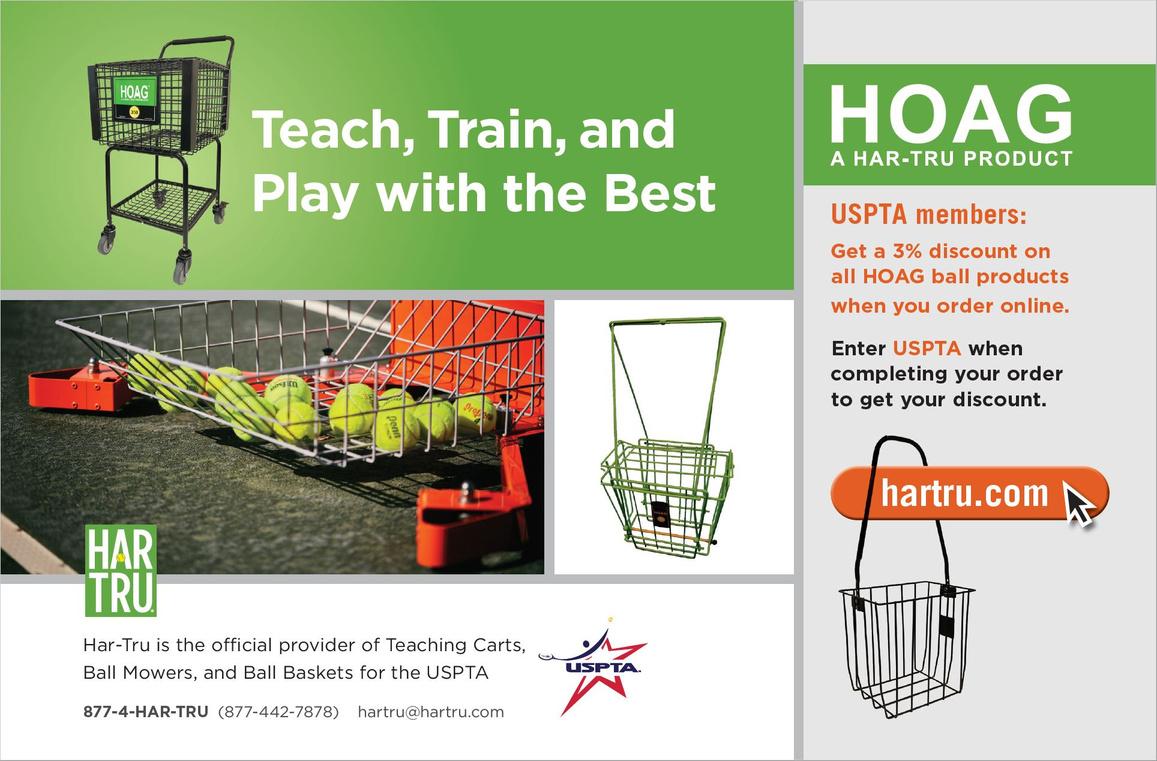YYANKEE ANKEE PPROSE ROSE





Regional President: Mike Kolendo m_kolendo@charter.net
Regional Vice President: Lisa Wilcott supermiketennis1@gmail.com

Secretary: Christy Bennett bennett@newengland.usta.com
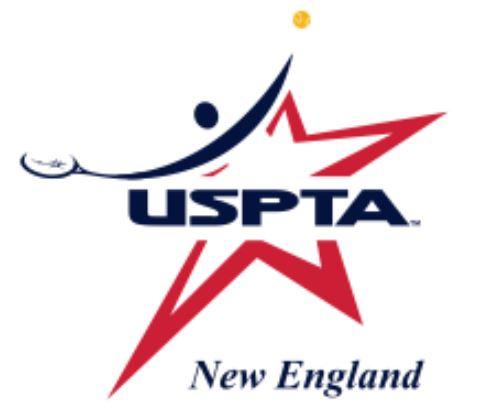
Treasurer: Chris Stevens stevens10spro@gmail.com
Vice President: Kristen Gerety kdgerety@icloud.com
Vice President: Milan Kubala stowemiles@gmail.com
Past President: Michael Mercier supermiketennis1@gmail.com

Exactly what are the responsibilities of a tennis professional? The answer likely varies depending on who you work for. The expectations of different employers can be quite different. So, what are the skills necessary to succeed in our industry? Should we be competent players? Great communicators? Stroke technicians? Mental toughness experts? Fitness and nutrition gurus? Great marketers? All of these are important. But do they guarantee a successful career in tennis? Even if one can answer “yes” to every question, I’d argue that the answer is still just “maybe.”
My first job in tennis was, for me, quite eye opening. I had the good fortune to be hired by Keith Perron, the Head Professional at an indoor tennis facility outside of Hartford, CT. It’s not only where I began to learn my craft, it’s where I discovered that a career in tennis was much more than hitting balls on a court from one hour to the next. It’s a business; with risks and rewards, opportunities and threats, inventory, equipment, staff, customers, competitors, management, ownership, suppliers, product and program development, pricing, margins, buying, marketing, sales, accounting, policy development, relationship building, taxes, continuing education, and — oh right — tennis.
Keith was a great roll model and quickly had me involved in almost every aspect of his operation. I’d like to think my business training – I had an MBA and a background in finance – was an asset to him. We planned and marketed programs together. He put me in charge of filling programs and stringing, as well as collecting and accounting for registration fees. I met with industry reps and helped decide what racquets and string we sold. While I enjoyed my time working for Keith, it became clear to me that there simply weren’t enough hours in a day to teach enough lessons to make what I considered to be “a real living.” To really make it, I needed to get my own Head Pro or Director of Tennis position — in effect, to run my own business, which is exactly what I did, and that decision is what put on my current path with the USPTA.
NE Executive Director: Pam Dodman pamela.dodman@uspta.org
It was important to my employer to have a certified Tennis Director. So, I joined our association, studied for the certification exam at home, and went off to be tested. Like many of you, I passed my USPTA certification exam at a one weekend-long testing workshop. In the interest of full disclosure, I didn’t even take the workshop. I just showed up for the test. I passed the written exam and off-court pieces in about 90 minutes and then completed the on-court tests in a few hours and… voila… I was a USPTA certified professional. At the time it seemed very reasonable to me. After all, I’d been teaching for a few years. I’d played college tennis and was a reasonably successful New England tournament player. But was it? The experience didn’t teach me much of anything.
Perhaps stories like mine are the reason our association has so drastically changed its certification pathway. Today, even becoming a USPTA Tennis Instructor requires completing 20 online courses, USTA Safe Play approval, a first aid certification, completing Teaching Essentials pre-workshop materials, and attending the Teaching Essentials virtual workshop. The requirements to become a Certified Professional are even greater, including an additional 16 online courses, 5 1-hour webinars on teaching private lessons, and a 3-day in-person workshop. Then, to attain Elite Professional status, certified members must pass a comprehensive written exam which covers topics including business, programming, sport science, and tennis operations.
Would I have been better prepared for my career in tennis if I’d gone through our new certification pathway? Would I have even joined our association if I’d had to go through the new pathway? Answering both questions can certainly be argued on either side, so I’ll save doing so for another day. What can’t be argued is that the mission of the USPTA is “… to elevate the standard of tennis-teaching professionals and coaches,” and I’d be willing to bet that I’d have learned something by going through the above listed coursework.
Further, my prior experience in running workshops as a 15-year member of USTA’s National Workshop Faculty has helped me understand that adults learn better in an environment where they actively participate – with the opportunity to process via give and take with not only the facilitator, but with all the other participants as well. According to Pam Dodman, our New England Coach Developer for tennis, this is exactly how the new in-person workshop is designed. And, having taken the new pickleball certification course with Angelo Rossetti, our New England Coach Developer for pickleball, I can attest that his workshop followed this learning model too.

Connecticut: Paul Coorssen pcoorssen@gmail.com
Maine: shardlowtennis@roadrunner.com
Wilbur Shardlow
Massachusetts: Stu Lehr stuartklehr@gmail.com & Phil Hayman hayman.phillip@yahoo.com
Rhode Island: Nestor Bernabe nestortennis@gmail.com
Vermont: Joyce Doud jdoud@edgevt.com
I believe that our certification process is the backbone of everything our association does. It’s what gets new professionals in the door by giving weight, value, and substance to those of us who have a USPTA certification. I hope you’ll all embrace our new pathway to certifications and recommend it to new coaches and colleagues yet to be certified. I can assure you that our New England Coach Developers are terrific and will be great ambassadors for our New England Division.

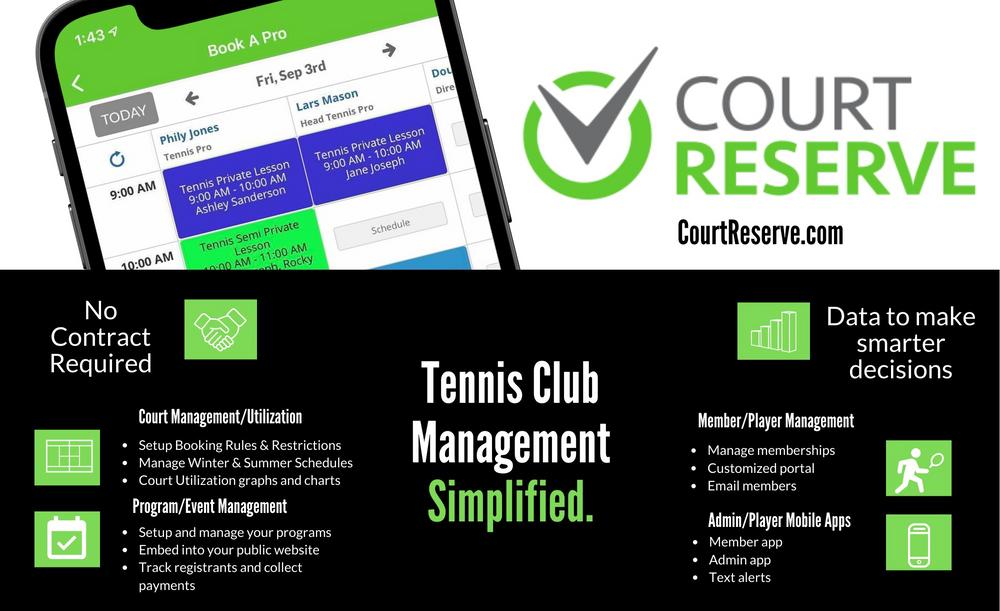
All the best,
Mike Kolendo PresidentUSPTA New England Division

413-374-9738
mkolendo46@gmail.com






A few fellow USPTA members/pros asked me if I would share my first World Conference experience. I thought, “Yes, easy enough!” Education, fun, shared learning, and recognition with members from around the U.S. Good food, drink, sun, and special events come to mind.
I am a 20-year member and have attended New England USPTA clinics, events, and workshops but 2023 was my first World Conference and it was well worth while to attend. Mike Mercier, Mike Kolendo, and Pam Dodman were helpful guides, and New England was well represented with many other members attending. Each day was well organized and structured with an indoor meeting room and outdoor on-court sessions offering coaching, drills, player development, strategy/tactics, business, topical speakers such as Chris Evert, Emilio Sanchez, John Embree, Steve Flink, etc. to choose from at your own pace and schedule.
Go kart races, arcade, Top Golf (a sheltered driving range) all with food and drink were a fun change of pace to have fun and socialize. Racquet sport brand representatives, Tennis Warehouse attended, and USTA representatives were also there with a hospitality suite (also with free food and drink) to answer any questions.

I recommend every member attend a World Conference at least once and when ever possible.
Cheers everyone and see you on the courts !
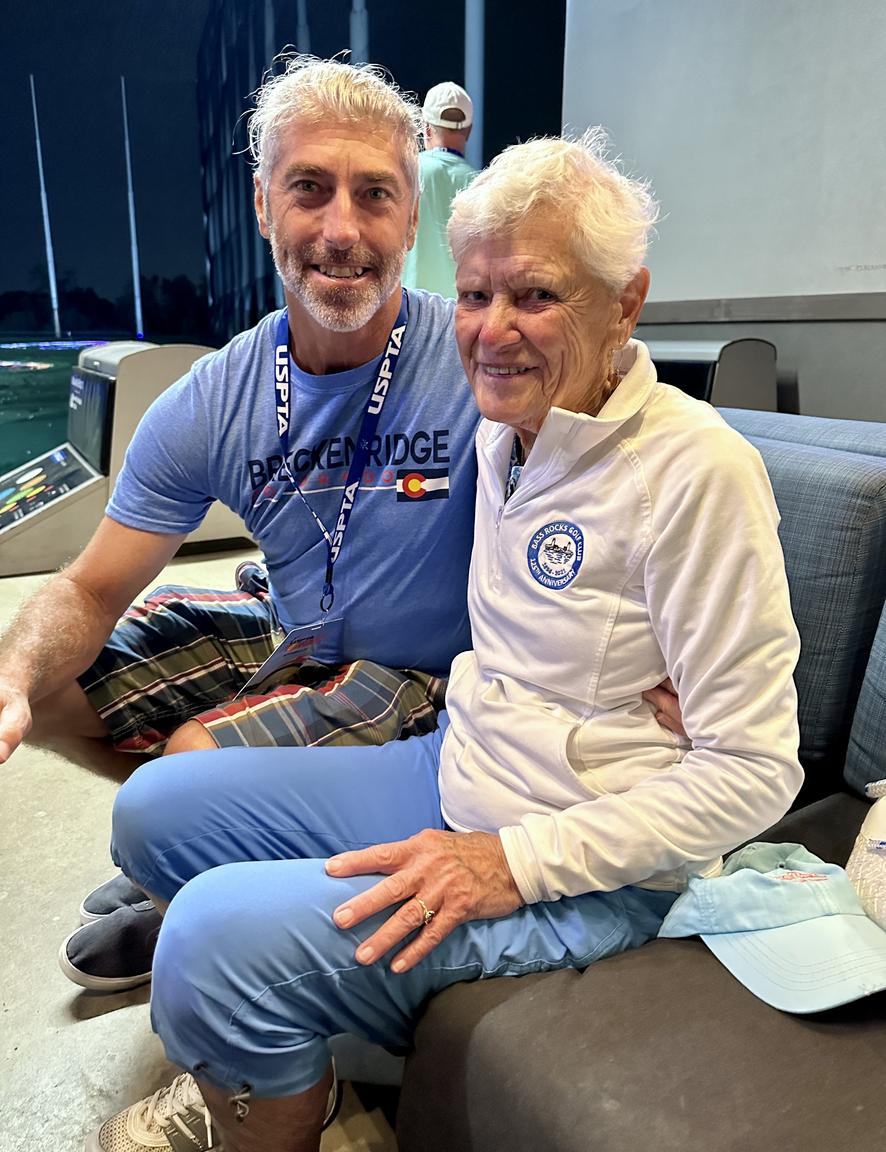




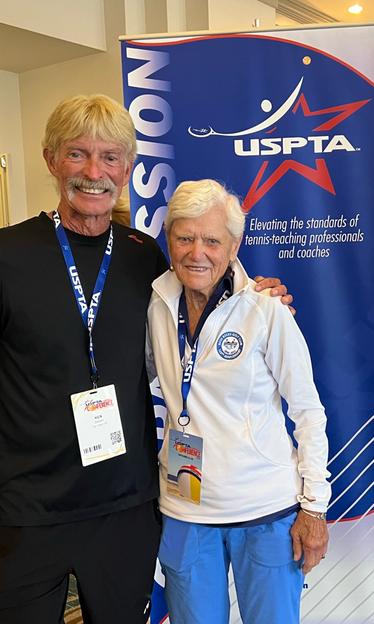
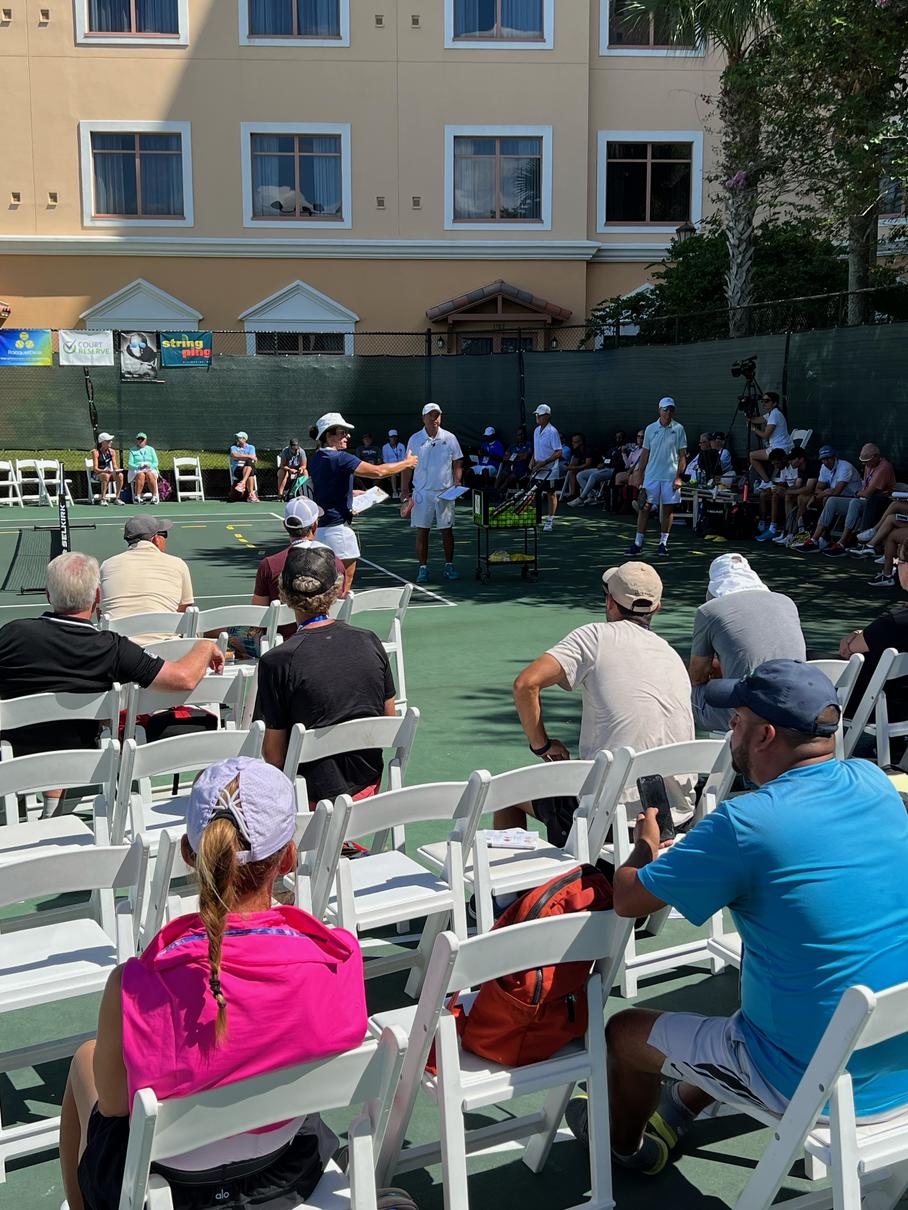
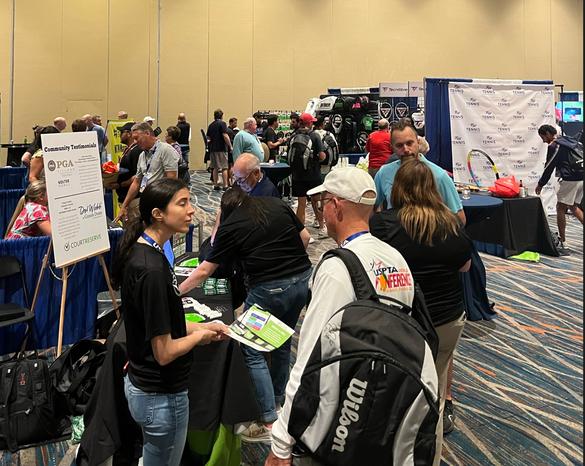

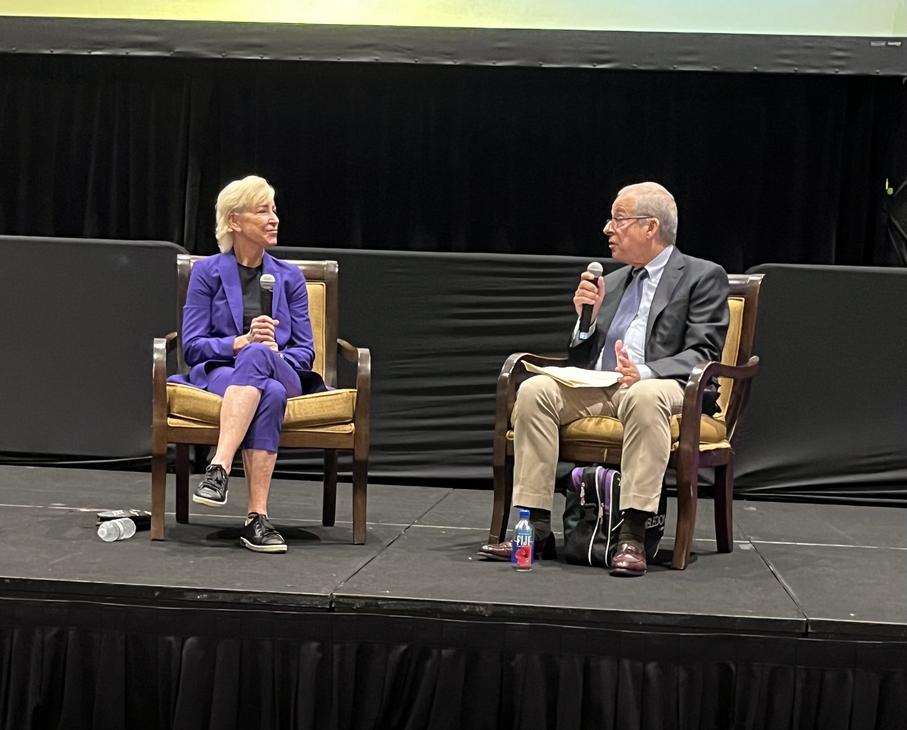


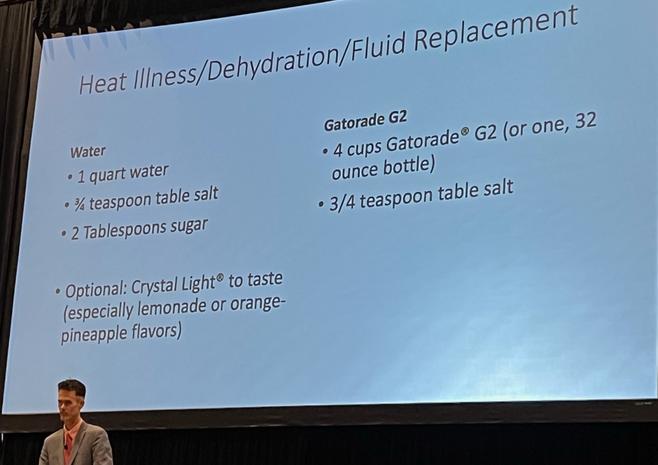





Current USPTA New England Hall of Fame Inductees whose brick is on the walkway are:

Laury Hammel - 2018
Jerri DiCamillo - 2018
Robert Green Jr. - 2018
Lynn Miller - 2017
Mike Quitko - 2017
Al Rogers – 2017
Norma Taylor - 2016
Don Henson - 2016
Larry Abrams - 2015
Howard Burnett - 2015
Henry Tiberio - 2015
John Foley - 2014
The USPTA New England Board is excited to announce that the USPTA New England Hall of Fame Honorees will have a permanent home at the International Tennis Hall of Fame in Newport, RI. The board purchased 40 bricks and has a section of the walkway devoted to our Hall of Fame Inductees.
Each Hall of Fame recipient will have their name engraved on a brick. Prior inductees into the division's Hall of Fame have their brick already established on the walkway! A ceremony for this year's Hall of Fame inductees, David Zeutas-Broer, Rick Sharton, and Barbara Maitland, as well as previous years' recipients will be held at the International Tennis Hall of Fame on Saturday, October 14th at 1:00 pm.
Frank Kenney - 2014
Dave Fleury - 2013
Kay Ruel - 2013
Betty Walsh - 2013
Ed Reid - 2013
Avis Murray - 2012
Dudley Bell - 2012
Jack Barnaby - 2012
Ed Sereus - 2012
Jacques Faulise - 2012

Click on the image to go to the registration pages. You must login to the USPTA site before you can register!!
If you would like your facility to host a workshop, please contact Angelo Rossetti at angelo@tennacity.org for pickleball, or Pam Dodman at pamela.dodman@uspta.org for tennis.

Encourage your non-certified colleagues, friends, and staff to become certified with the USPTA. Even if you are certified, the Level 2 Tennis Certification Workshop is a great refresher! You will come away with new ideas, reminders of good communication tactics, corrective technique strategies, and more! You can even earn education credits.


USTA New England's annual professional development conference, New England Tennis Weekend is coming in November! Join our partners on Nov. 3rd for an oncourt session at Longfellow Health and Tennis Club in Wayland, MA and join in on the main conference on November 4th at the Verve Hotel in Natick, MA. There are a variety of sessions and experts in the field to learn from. Come network with other pros in the industry. You will receive education credit for attending. $30 for the on-court session and $80 for the conference. Hope to see you there - Register here.

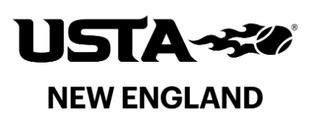




 by Ryan Johnson; Liaison, McMahon Careers Young Professionals Group
by Ryan Johnson; Liaison, McMahon Careers Young Professionals Group
I remember my first day as a Director of Tennis like it was yesterday; full of hope, excitement, and an absolute fear of failure. I had adopted a mindset of what some would refer to as Impostor Syndrome: “I don’t know what I’m doing. It’s only a matter of time until everyone finds out.” As a new leader, I felt immense pressure to be the one with all the answers. Looking back, I would tell my younger self to have more self-confidence in my ability to learn. A mindset that I later learned to adopt was a Growth Mindset: “I don’t know what I am doing yet. It’s only a matter of time until I figure it out.” While serving as a Director, and observing other well-respected leaders, I quickly came to realize that they don’t always have the answer but possess a commitment to learn and seek out information.
If you are currently serving as a new Director of Racquet Sports, or you are on your way to the role, then my hope is that you find these lessons learned useful on your journey.

1. Take Time To Learn - In most cases, you have what is referred to as the “Honeymoon Period”. Utilize this time (often 90 days), to observe the existing programs, connect with colleagues and members, and develop a strategic plan on how you and your team will move the program forward, and enhance the member experience. Where possible, avoid making substantive changes, as this is your first and only chance to make a positive first impression. This is your time to learn the culture and build coalitions.
2. Secure Early Wins - Your opportunity to build credibility will never be stronger than during the first few months on the job. It’s vital to identify opportunities to make a positive impression with your colleagues and members. This doesn’t have to be a large or complex undertaking. Look for the lowhanging fruit at the beginning. As you begin to learn the culture, you may discover that it can be something as easy as making yourself visible, ensuring the facility is clean, or taking the first step to create bridges across different departments. Towards the end of your transition, you want your boss, your colleagues, and your members to feel that something new - something good is happening. Early wins will excite and energize your staff and members, and build your personal credibility.
3. Build a United Team - As leaders, it is incumbent on us to build the culture and community we desire with our teammates. We can disagree and have different opinions behind closed doors, but to the members and other staff, we are 100% supportive of one another, and must always present a united front. We are each other’s greatest supporters.
4. Don’t be Afraid to Make Mistakes - As leaders, there is no doubt that it’s easy to buy into the perception that we must be perfect and have all the answers. This mindset can be crippling and impede your ability to grow your program and grow as a professional. Think about when a pro resorts to being conservative or careful with programming. It’s easy to continue to produce the same thing, but with this approach, we risk the program becoming stale, predictable, and boring. Find ways to keep the program fresh. Take chances with new ideas and concepts. Tap into your network and utilize the amazing professionals that likely surround you in your own club or facility. As Winston Churchill once saide, “Perfection is the enemy of progress.”
5. Don’t Stop Learning - One of the greatest attributes that I have observed from the best leaders is that they never stop learner. They are constantly finding ways to build their network and learn new information. This probably goes without saying, but it’s vital to get involved with your local tennis community and organizations like the USPTA.
Additionally, I would encourage you to commit time to continuing education programs, such as the Certified Racquet Sports Executive (CRSE) Program or USPTA Director of Racquet Sports Program that are targeted towards enhancing the success of leaders in the racquets sports industry.

Ryan Johnson is the Director of Racquet Sports at Paradise Valley Country Club. Ryan lends his expertise to McMahon Careers as the Liaison to the firm’s Young Professionals Group and its work with young Racquet Sports Professionals who aspire to career success and leadership roles in the racquet sports industry. For more information, visit:

McMahon Careers offers career coaching and executive education programs for racquet sports professionals and executive search services for employers. The firm also manages USPTA Director Search. For more information visit: https://mcmahoncareers.com or https://USPTADirectorSearch.com
https://mcmahontennissear ch.com/ypg


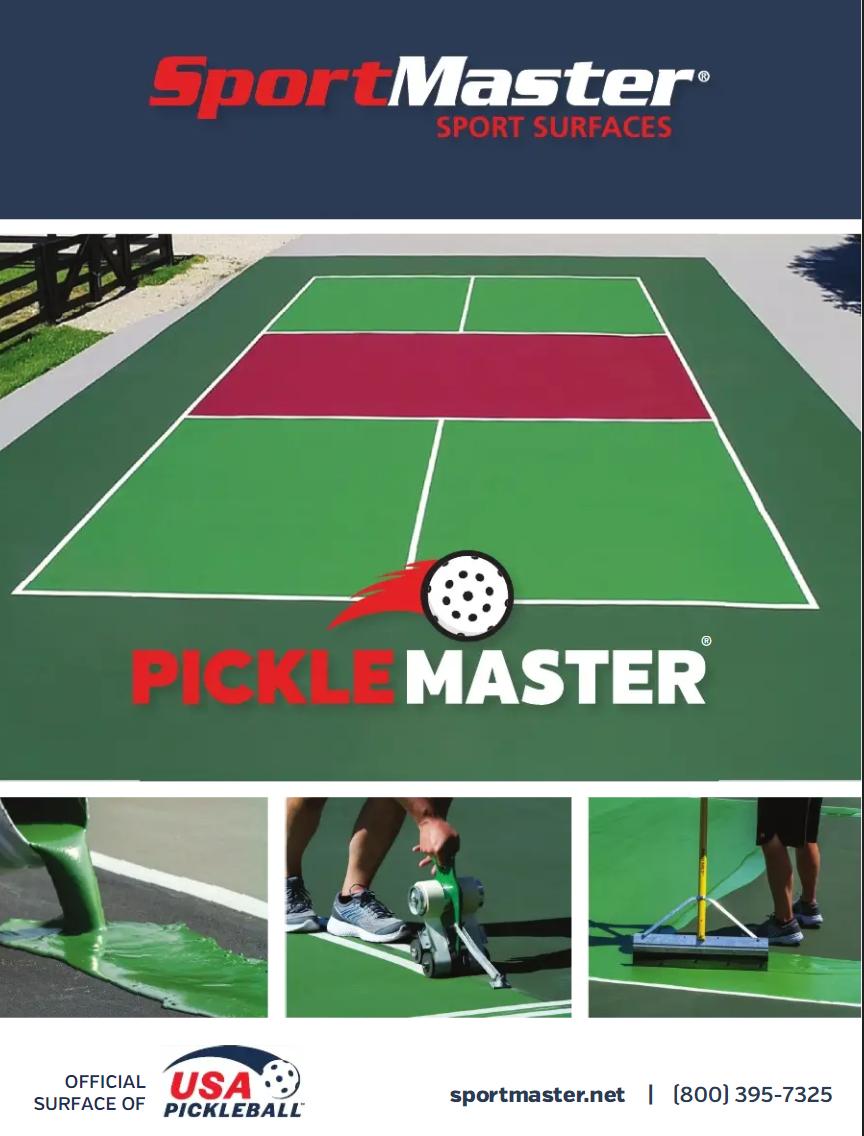



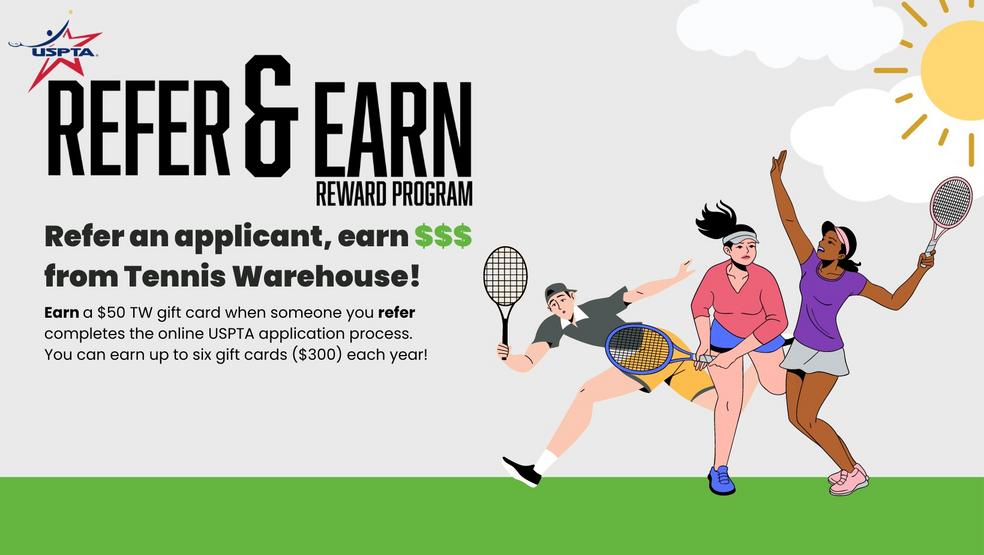

 by Ashley Owens; Co-Founder/Owner CourtReserve
by Ashley Owens; Co-Founder/Owner CourtReserve
In today’s digital age, effective communication is critical to the success and growth of any organization. Tennis and pickleball facilities are no exception. To streamline communication and keep players informed, facilities should leverage the power of push notifications These instant messages sent directly to players’ smartphones can revolutionize how facilities interact with their players. We will explore why tennis and pickleball facilities should adopt push notifications as a primary communication channel.
One of the most significant advantages of push notifications is their speed. With a single tap, facilities can instantly reach all players, ensuring timely and relevant updates. Whether it’s changes in court availability, registrations, upcoming events, or facility closures, push notifications deliver real-time information directly to players’ devices. Facilities can ensure that players receive critical updates promptly by eliminating the delays associated with emails or phone calls
Push notifications have a remarkable ability to capture players’ attention and engage them with facility activities. Unlike emails that can quickly go unnoticed in overflowing inboxes, push notifications appear directly on players’ screens, demanding immediate attention. Facilities can leverage this advantage to promote upcoming tournaments, social events, and clinics or even share tips and advice related to the sport. By providing valuable and personalized content, facilities can keep players engaged and foster a sense of community.
Push notifications offer a highly personalized communication approach. Facilities can segment their player base and tailor messages based on specific criteria such as skill level, age group, or preferred playing times This level of customization allows facilities to send targeted notifications, ensuring that players receive relevant information that matches their interests and needs. For example, a facility might notify advanced players about an upcoming high-level tournament, while beginners might receive notifications about beginner-friendly clinics or workshops. Such targeted communication enhances the overall player experience and helps build lasting relationships.
In a busy world, players often need help to keep track of their schedules. Push notifications can be friendly reminders, helping players stay organized and on top of their commitments Facilities can send notifications about upcoming matches, league schedules, or lesson reminders, ensuring players never miss an important event. Additionally, in unforeseen circumstances such as inclement weather or sudden court closures, push notifications provide a quick and efficient way to update players, reducing confusion and inconvenience.
In today’s fast-paced world, effective communication is vital for tennis and pickleball facilities to thrive and maintain a strong connection with their players. By harnessing the power of Push Notifications technology, CourtReserve can help tennis and pickleball facilities foster stronger player relationships, create a sense of community, and enhance the overall player experience.



